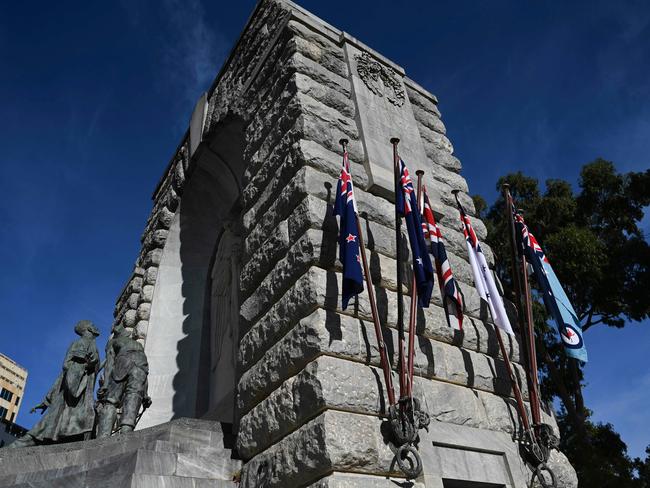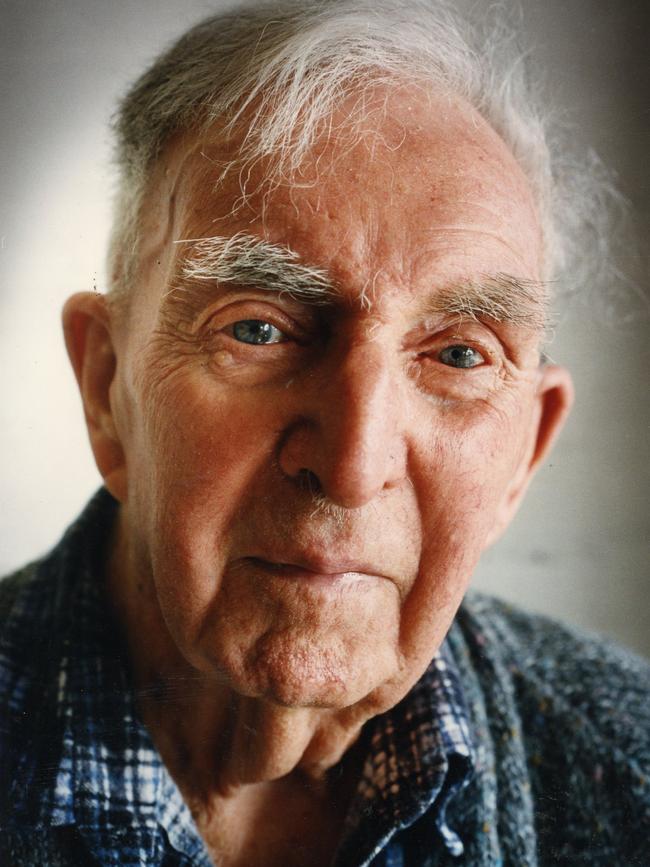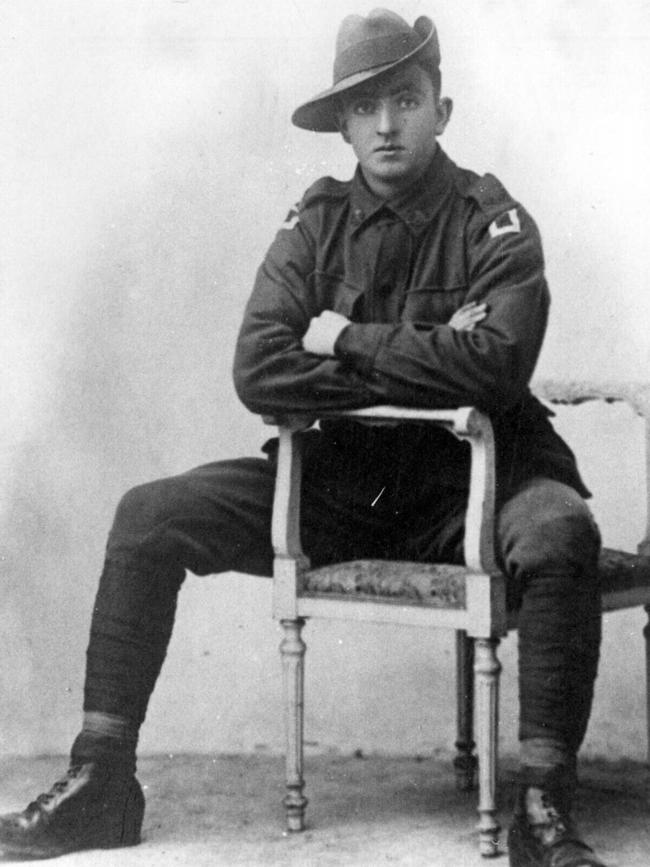Mystique and mythology of dawn breaking on hope and memory | Peter Goers
The Dawn Service is a sacred remembrance of sacrifice and a plea for the sanctity of peace. Impossible but essential peace, writes Peter Goers.
Opinion
Don't miss out on the headlines from Opinion. Followed categories will be added to My News.
Anzac Day dawns on us yearly.
As Australians we should be judged by our attitude to servicemen and servicewomen, and we should never forget the more than 101,000 of us who died in foreign wars for our nation.
The Dawn Service is a sacred remembrance of sacrifice and a plea for the sanctity of peace. Impossible but essential peace.
Dawn Services unite Australians everywhere.
Even if you don’t attend, you feel something on our only true national day.
In every corner of our nation and the world, Australians foregather to commemorate and remember the spirit of selfless volunteerism on which our nation is built.
And on which it endures.
Last week, I commentated my 20th Dawn Service for ABC Radio at the State National War Memorial.
Many would agree with me in thinking, as I get up at 3.30am every Anzac Day, “Why couldn’t they have landed at 11am, or 2pm or what was wrong with 6pm?”

But then when you attend a Dawn Service, you succumb to the magic, mystique and mythology of dawn breaking anew and afresh over remembrance, gratitude and the eternity of hope.
As thousands of faces are illuminated by the light of dawn we are sanctified by that new light. It’s a very profound national moment.
People used to say “it always rains on Anzac Day” and farmers looked for the “break” and people put flannelette sheets on beds.
But the climate changes and, happily, it hasn’t rained significantly on Anzac Day since 1996, when it poured.
Nowadays, among the customary 10,000 congregants at the service on North Terrace, there are so many kids.
Kids bring their parents, not the other way around, and thus the Dawn Service tradition has a fine future.
Anzac Day ceremonies nearly died out during the Vietnam War, when we made a grave mistake in blaming soldiers for wars.
We learned from that and must always acknowledge the Vietnam vets for enduring so much opposition and helping our nation grow in remembrance.
I was honoured to interview Tom Epps, the last South Australian Gallipoli veteran.


In my three years living in Turkey, I visited Gallipoli 18 times including two Anzac Days.
In 1997, a Turkish student of mine in Istanbul lent me his grandfather’s cherished Çanakkale Star which he’d won for valour at Gallipoli.
I pinned it on the right side of my overcoat (Gallipoli in April is very cold) and wandered around among the thousands of pilgrims before the Dawn Service at Anzac Cove.
Then I noticed, to my abject horror, the medal had fallen off and was lost.
I made a plea for its return from the dais in both English and Turkish, and mercifully someone found it.
The student felt that lost and found the medal now belonged to me, and I wear it proudly every Anzac Day.
In 2005, I began commentating the Dawn Service and profound as the experience is, sometimes there are lighter moments by dawn’s early light.
I get there very early to watch the crowd swell which is what General Monash called “the great solemnisation of our nation”.
One year, two very well-dressed, posh chaps came over to me and without saying good morning barked at me, “We’re from the Adelaide Club. Where do we put our wreath?”
There are several answers to that and I was tempted to tell them to lay it on the River Torrens and jump in after it.
Radio hates silence.
After 25 seconds of dead air the computer thinks that the announcer has dropped dead and automatically cuts in with Abba’s Dancing Queen which is not ideal during the minute’s silence.
For years, to keep the mic alive, I breathed heavily into the mic and made noise with a bird call device around my neck.
About ten years ago, the RSL changed the minute’s silence to a two-minute silence and that year the silence was interrupted by Lior’s This Old Love.
There was a meeting at the ABC where a technical producer gave me the strangest ever direction, “to solve the problem, next year can you describe the silence”.
Er … no.
Nowadays, recorded birdsong plays softly in the silence.
I always look at the wreaths and floral tributes on our glorious war memorial and every year I saw an exquisite posy of pink rosebuds and the appended card read only “For Nugget” and described his New Guinea service and death.
Year after year that tribute was in exactly the same place on the memorial until it wasn’t. It’s absence brought me to tears.
Nugget’s sister or widow or sweetheart had clearly died, so every year I bring flowers for Nugget and the person who loved him and never forgot him, and for all those whose memory must never be lost.
Lest we forget.





